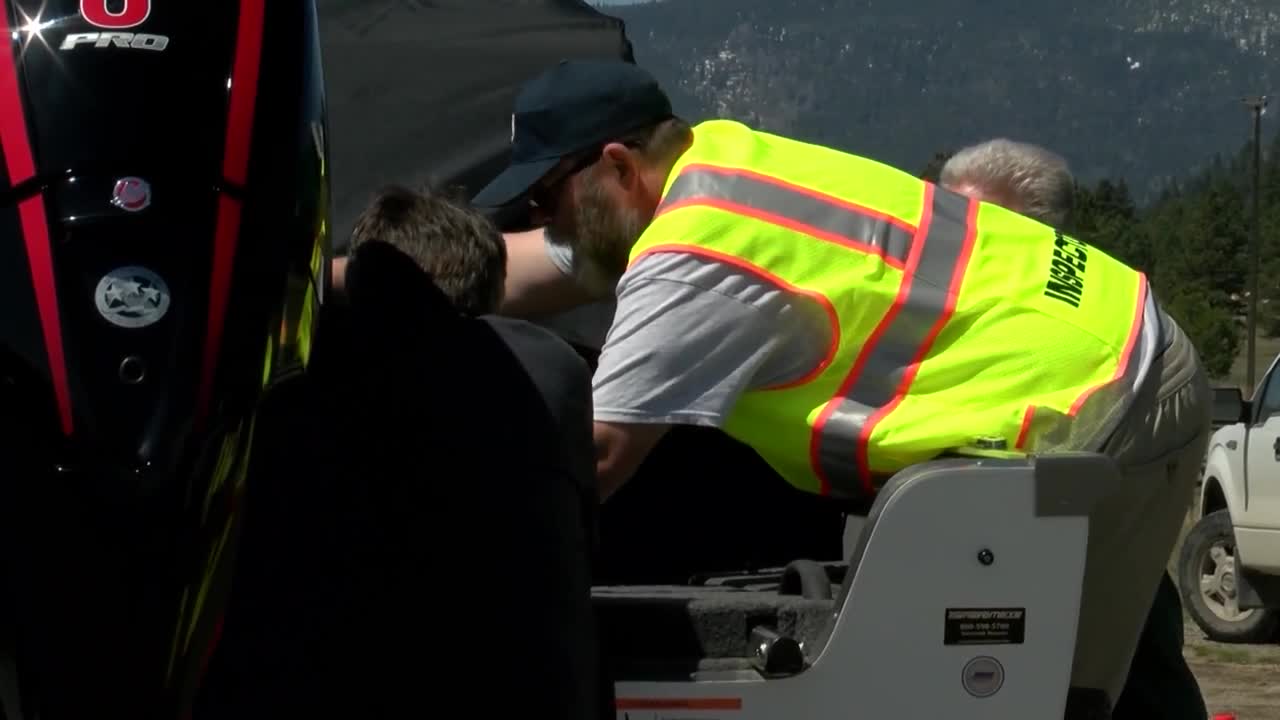HELENA — As Montanans look towards peak boating season, experienced boaters and new boaters alike must stop at every open Fish, Wildlife, and Park's Aquatic Invasive Species check station they come across when traveling with their boat or other watercraft like canoes and paddle boards.
“We’re looking for plants, animals, mud, standing water. We do bait, — look for that because they can have viruses and stuff like that and fish movement. Moving around we don’t want. So that’s the point of the watercraft inspections, is to make sure that we’re not moving [aquatic invasive species] around,” said Zach Crete, FWP's AIS Prevention Coordinator.
Crete noted that compared to last season, fewer boats have been checked so far but they have seen more boats fouled by invasive species. With the peak boating season still ahead, Crete says FWP expects check stations to be busy this summer.
“Main boating season is coming up on us through that first week of September and it’s going to start getting real busy. We see around 120,000 inspections a year in Montana. So it is starting to ramp up, especially with weather like this,” said Crete.
The main reason behind requiring those with watercraft in tow to stop at check stations is to check for invasive species, but inspectors are also there to educate boaters on the negative effects they can have on Montana's waterways.
“I did find myself my own mussel boat last year. It was actually one of the first boats I got to inspect. So it was really cool to be able to interact with the boater and educate them on these, and why we do this program to be able to protect our waterways,” said Rebecca Corbally, a watercraft inspector for FWP.
As for how long watercraft owners should expect to wait at check stations before they can have their watercraft inspected, Crete says it depends but if the watercraft and owner are prepared before they get to the check station it makes the entire process quicker.
“If they’re dirty and we have to clean them in order to properly inspect them, then that starts adding time. But if people come in and they know to pull their covers, get their live wells open, their boats are clean when they get here, the inspection process is going to be very quick,” said Crete.





